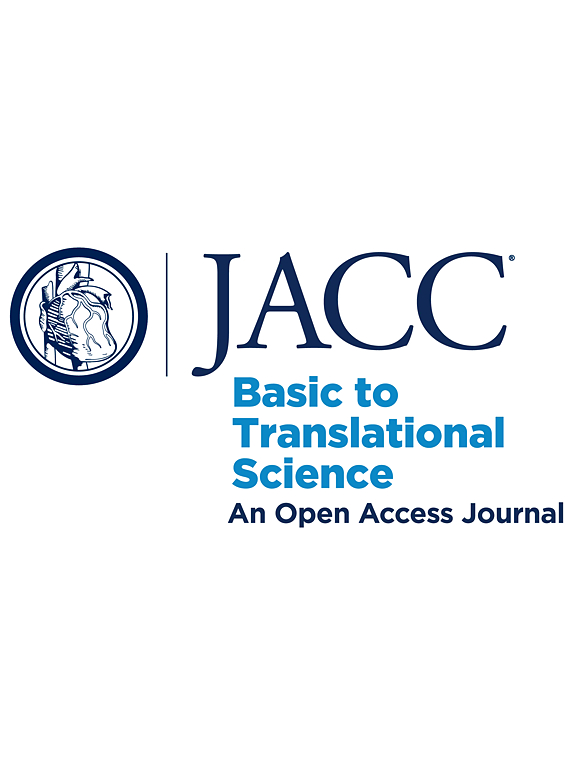Cardiac Injury Regulates Neuroinflammation Through Extracellular Vesicle–Mediated Heart-Brain Crosstalk
IF 8.4
1区 医学
Q1 CARDIAC & CARDIOVASCULAR SYSTEMS
引用次数: 0
Abstract
Cognitive impairment is common in heart failure patients, contributing to morbidity and mortality. This impairment may be linked to neuroinflammation in heart failure. However, the primacy of the heart-brain axis remains to be completely understood. Here, we elucidate the potential effects of myocardial injury on pathways and inflammatory mediators responsible for cognitive impairment using a rodent myocardial injury model. The results demonstrate direct extracellular vesicle (EV)-mediated heart-brain crosstalk and the glial uptake of cardiac EVs. In addition, brain inflammation was also elicited following myocardial injury. Moreover, cardiac EVs promote brain microglial cell activation in vitro, potentially mediated by EV-enriched micro-RNAs (miRNAs). miRNA-21 was selectively up-regulated and secreted by cardiac cells under stress via EVs and contributed to a proinflammatory response in microglia in vitro. Under cardiac stress, cardiac-secreted EVs abundant with miRNA-21 communicate with the brain and are associated with microglial activation, which may be responsible for neuroinflammation and neurotoxicity following myocardial injury.
心脏损伤通过细胞外囊泡介导的心脑串扰调节神经炎症
认知障碍在心力衰竭患者中很常见,导致发病率和死亡率。这种损伤可能与心力衰竭的神经炎症有关。然而,心脑轴的首要地位仍有待完全了解。在这里,我们利用啮齿动物心肌损伤模型阐明心肌损伤对导致认知障碍的通路和炎症介质的潜在影响。结果表明,直接细胞外囊泡(EV)介导的心脑串扰和心脏EV的胶质摄取。此外,心肌损伤后还可引起脑炎症反应。此外,心脏ev在体外促进脑小胶质细胞活化,可能是由ev富集的微rna (miRNAs)介导的。在体外实验中,应激条件下心肌细胞通过ev选择性上调和分泌miRNA-21,并参与小胶质细胞的促炎反应。在心脏应激下,富含miRNA-21的心脏分泌的ev与大脑交流,并与小胶质细胞激活有关,这可能是心肌损伤后神经炎症和神经毒性的原因。
本文章由计算机程序翻译,如有差异,请以英文原文为准。
求助全文
约1分钟内获得全文
求助全文
来源期刊

JACC: Basic to Translational Science
CARDIAC & CARDIOVASCULAR SYSTEMS-
CiteScore
14.20
自引率
1.00%
发文量
161
审稿时长
16 weeks
期刊介绍:
JACC: Basic to Translational Science is an open access journal that is part of the renowned Journal of the American College of Cardiology (JACC). It focuses on advancing the field of Translational Cardiovascular Medicine and aims to accelerate the translation of new scientific discoveries into therapies that improve outcomes for patients with or at risk for Cardiovascular Disease. The journal covers thematic areas such as pre-clinical research, clinical trials, personalized medicine, novel drugs, devices, and biologics, proteomics, genomics, and metabolomics, as well as early phase clinical trial methodology.
 求助内容:
求助内容: 应助结果提醒方式:
应助结果提醒方式:


